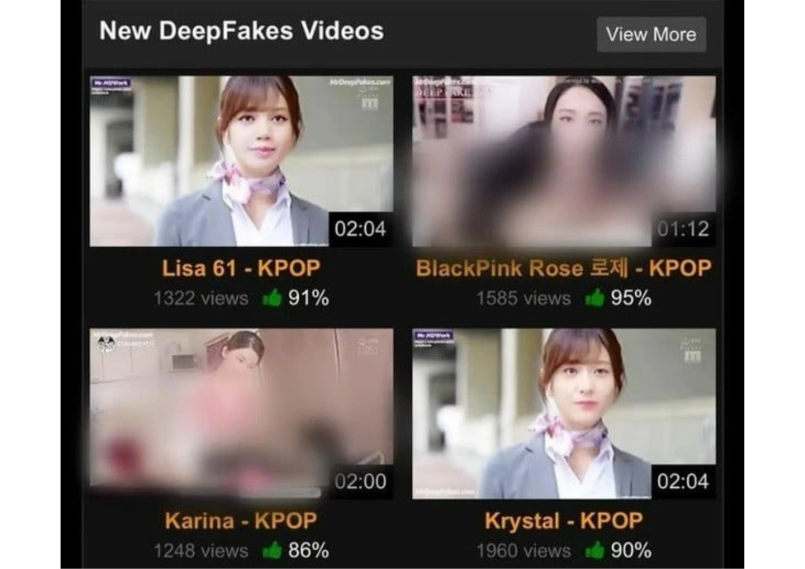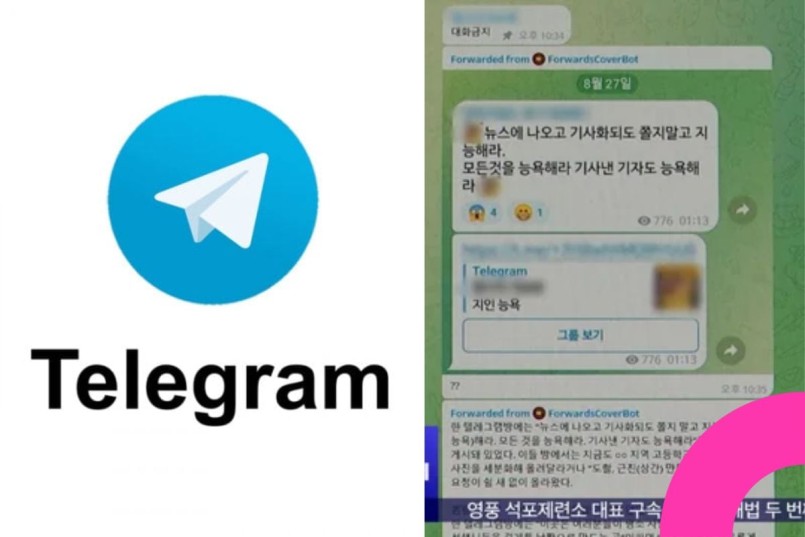A deepfake pornography scandal involving Korean celebrities and minors has shaken the nation, as authorities confirmed the arrest of 83 individuals operating illegal Telegram chatrooms used to distribute AI-generated explicit content.

The Northern Gyeonggi Provincial Police Agency announced Saturday that 23 individuals were detained for violating the Child and Youth Sexual Protection Act and the Special Act on the Punishment of Sexual Violence Crimes.
An additional 60 male participants were also taken into custody.
The group is accused of creating more than 1,100 deepfake pornographic videos, including approximately 30 depicting female K-pop idols and other celebrities without their consent.

"This is not just a prank or an anonymous joke.
It's a serious crime," South Korean President Yoon Suk-yeol said during a cabinet meeting last week.
"Many of the victims are minors, and most of the offenders are teens and young adults."
According to police, the videos were produced and distributed via private Telegram channels, some of which had over 20,000 subscribers.
Much of the pictures used was pulled from social media posts, graduation portraits, and university websites.
The case has been compared to South Korea's notorious "Nth Room" case in 2020, which involved the blackmail and sexual exploitation of women and minors.
But authorities say the nature of these crimes has evolved—relying now on advanced AI to fabricate explicit content, often without the victim's knowledge.
Park Sung-hye, head of the Digital Sex Crime Victim Support Center's takedown team, said children under 10 are now both victims and perpetrators.
"Some kids use photos of classmates or even teachers. They don't always understand the gravity," Park said.
"The technology is easy to access, and the consequences are devastating."

Data from the Korean Women's Human Rights Institute revealed that 92.6% of deepfake sex crime victims in 2024 were teenagers.
The number of reported manipulated content cases skyrocketed from 1,384 in 2023 to over 10,305 last year.
One case, in recent days, involved a 28-year-old man who was given a five-year prison term for making sexually explicit deepfake videos featuring women, including at least one former student attending Seoul National University. In another incident, four men were convicted of producing at least 400 fake videos using images of female university students.
The court described their actions as "indescribably degrading."
The Korean government has pledged stricter enforcement.
The National Police Agency said it will enhance digital surveillance and cooperate with platforms like Telegram, which has opened a hotline with Korean regulators.

"These crimes are hiding in plain sight—inside our smartphones, our schools, and our online communities," President Yoon said. "We must eliminate them."
The latest scandal has ignited urgent calls for deeper regulation of AI tools and online platforms amid growing concerns about digital consent, privacy, and exploitation.












